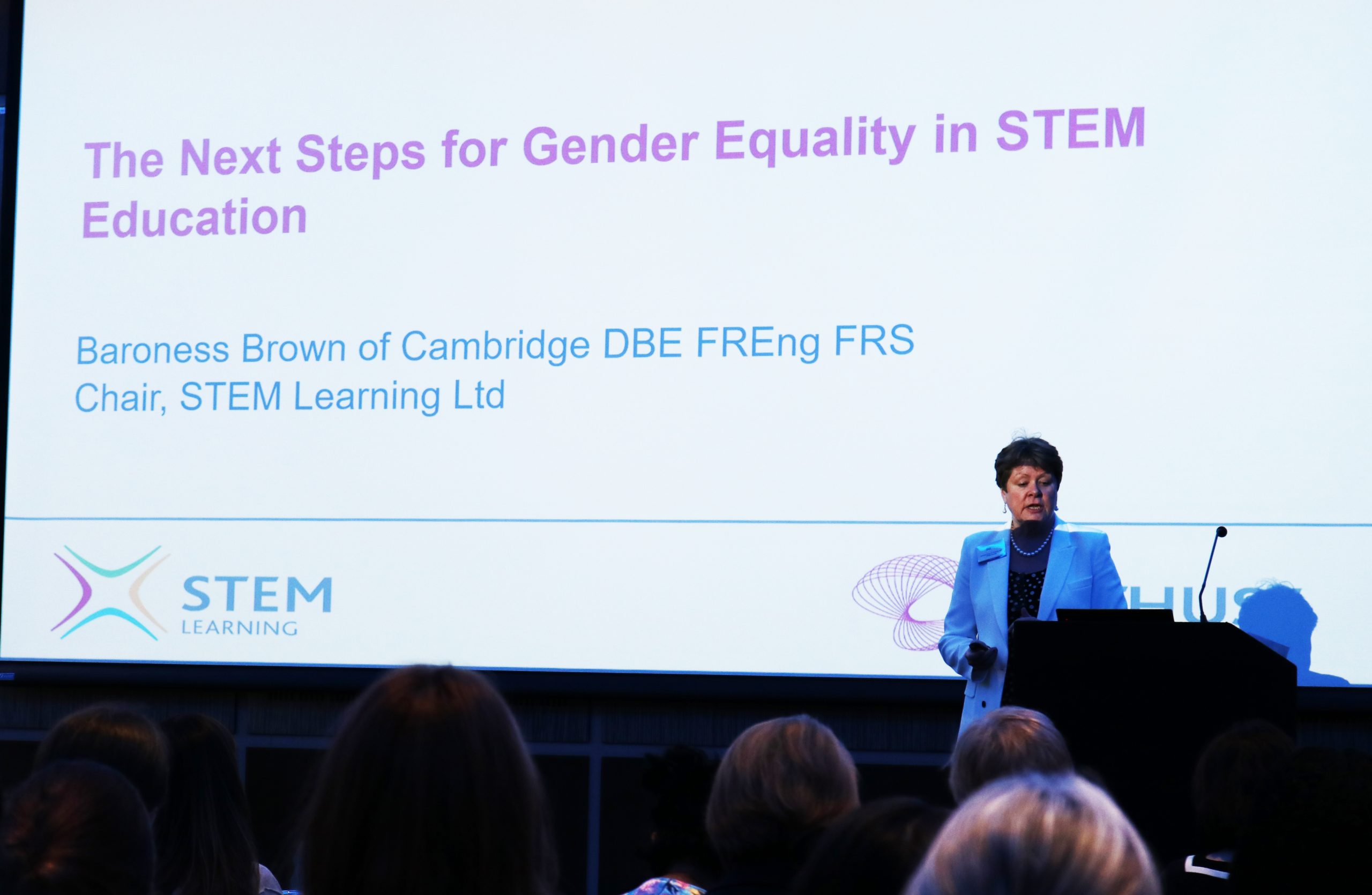Understanding bias facing girls in education, and equipping teachers with the skills to encourage their passion and talent, are both vital to addressing gender inequality in STEM, according to Baroness Brown of Cambridge, Chair of the Henry Royce Institute.
Addressing Women in STEM 2019 – an event dedicated to increasing equality in STEM – Baroness Brown highlighted research showing that girls are more likely to be criticised for their work in the classroom than boys. Recognising this, regular CPD for teachers to help them develop an understanding of gender bias and techniques for addressing it is vital.
Sharing practical advice from the gender pay gap to Brexit, and recruitment and culture within research organisations, Women in STEM 2019 was opened by Elizabeth Donnelly, CEO of Women in Engineering.
Elizabeth called for the neutralisation of STEM job adverts, removing masculine-coded language such as ‘assertive’, ‘persistent’, and ‘self-confident’, which have been shown to discourage female applicants. Organisations can check their job adverts for gender bias using online tools such as a gender decoder.
Rounding off her opening address, Elizabeth emphasised the need for ambition in the messages we give aspiring young people about engineering:
We say ‘ you need aptitude for maths and science’ to be an engineer.
But we could say ‘engineers save more lives that doctors’.
Amongst the threats to increasing women in STEM research and industry roles is Brexit, according to Jane Clarke, Professor of Molecular Biophysics at the University of Cambridge and a member of the Royal Society’s Education and Diversity committees.
Einstein said ‘if we knew what it was that we were doing it wouldn’t be called research’. You need diversity in research groups, to look at problems in different ways. Brexit with no deal will restrict the mobility of researchers, so we must avoid no deal at all costs.
Professor Clarke also highlighted the need to move away from short term contracts, restrictive funding eligibility and a long hours culture which make it harder for female researchers to remain in academia.
If a pipe leaks, you don’t blame the water…you fix the pipe.
The conference was attended by a number of Henry Royce Institute staff with responsibilities for equality and diversity, and the accessibility of materials research and facilities.
Tes Monaghan, Assistant Engineering Technician at the University of Sheffield spoke to the Royce about her passion for equality and diversity, and her own route into a STEM career:
In my final year at university my now line manager was helping me out with experiments – she was a woman technician and it just clicked and I thought ‘I can do that!’. Seeing someone in that position made me realise I could do it too. It was a wonderful moment when I realised I could continue learning and take on a career in science.
I think quotas in jobs will help resolve gender imbalance. We need to see underrepresented people in these positions to encourage a women, people of different ethnicities, disabled people to pursue careers in STEM.




